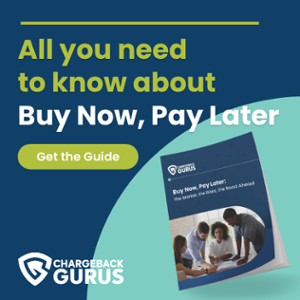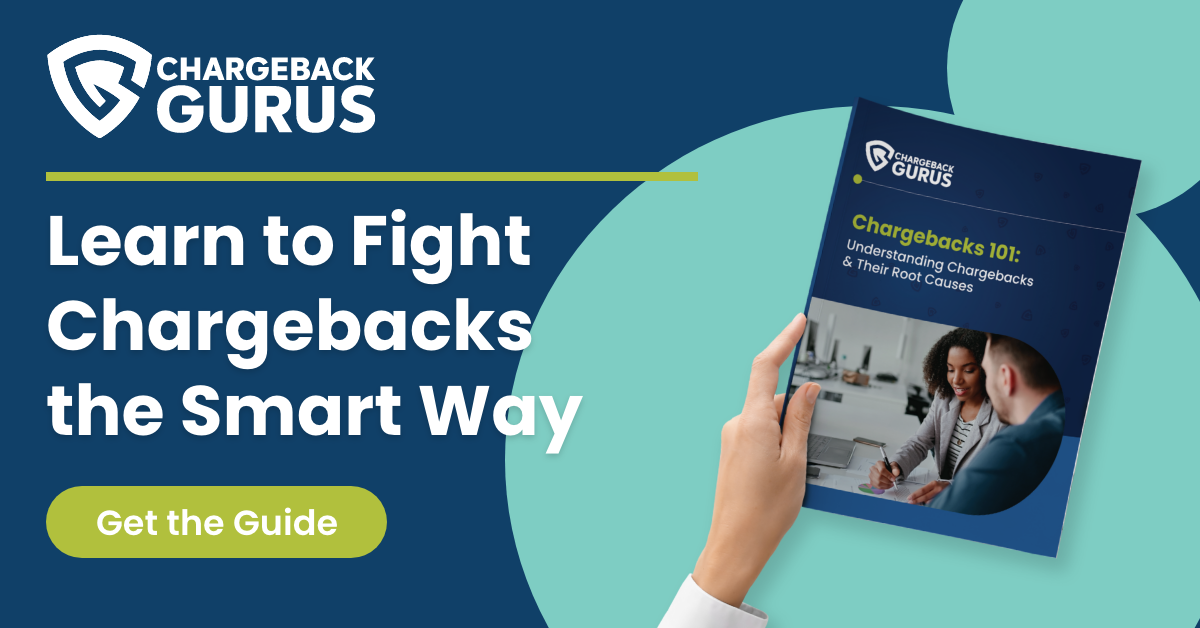Preparing for Recession-Driven Fraud and Chargebacks

Retail merchants know that fraud and chargebacks are problems that never completely go away. There’s a lot you can do to prevent them, fight them, and mitigate their impact, but the circumstances that cause them are sometimes out of your control.
The overall state of the economy can have a significant influence on their frequency and severity, and the looming threat of a possible recession means that merchants might be seeing more (and costlier) incidents of payment fraud and customer disputes, along with the chargebacks that inevitably follow them. What do merchants need to do to prepare for a recession-driven increase in fraud and chargeback rates?
- How are Fraud and Chargeback Rates Impacted by Economic Recessions?
- Why Do Recessions Cause an Increase in Fraud and Chargebacks?
- What Can Merchants Do to Protect Themselves from Recession-Driven Fraud and Chargebacks?
- Conclusion
According to a recent Bloomberg survey, economists are predicting a 70% chance that the U.S. economy will go into a recession in 2023. Recessions are correlated with rising interest rates, high inflation, and other factors that are increasingly likely to be an issue in the year ahead.
Merchants can easily predict some of the immediate consequences of a recession.
Consumers cut back on non-necessary spending, churn rates go up, new customers become more costly to acquire, and the average transaction amount drops. Unfortunately, that’s not the worst of it: recessions can also lead to an increase in fraud, customer disputes, and chargebacks.
Now is the time for merchants to start thinking about how to make their business recession-proof. While there’s no way to obtain 100% protection against chargebacks, that doesn’t mean you can afford to just write them off as an inevitable cost of doing business. By taking a proactive approach toward dealing with an expected increase in fraud and disputes, you keep your chargeback ratio as low as possible and hold on to revenue that might otherwise be lost.
How are Fraud and Chargeback Rates Impacted by Economic Recessions?
We have seen from both our own internal data and from outside studies that fraud and dispute rates go up during times of economic recession, leading to an overall increase in chargebacks.
- During an economic recession, the average merchant’s fraud-to-transaction ration increases by 50%.
- In addition, their dispute-to-transaction ratio increases by 42%.
Not only do you see an uptick in the frequency of these issues during a recession, they also grow more costly. The financial impact of fraud and chargebacks becomes greater during a recession.
- During an economic recession, the average percentage of revenue lost to a fraudulent transaction increases by 39%.
- The cost of fraud relative to the transaction amount also increases by 12%.
A recent survey by Checkout.com shows that more than a quarter of retailers have experienced higher chargeback rates over the past six months, and 19% have lost significant amounts of revenue to payment fraud. If economic indicators continue to trend in an unfavorable direction, businesses stand to lose more than $200 billion in the next two years.
Why Do Recessions Cause an Increase in Fraud and Chargebacks?
In uncertain or strained economic times, consumers and merchants both have a tendency to make choices that can lead to an increase in fraud and chargebacks.
Consumers often cut back on optional purchases during a recession, but their basic needs don’t go away. When consumers are underemployed or losing their spending power due to inflation, they may be more likely to experience buyer’s remorse, file disputes over questionable issues, or fall prey to scams that give fraudsters access to their payment cards. First-party misuse, or “friendly fraud,” already accounts for nearly two-thirds of all chargebacks, and many consumers justify the practice to themselves by rationalizing that they need the money more than the merchant does.
Merchants, for their part, will often try to blunt the impact of an impending slowdown in sales by optimizing for revenue collection. This could mean slackening their fraud defenses to reduce false declines, which can let more fraudulent transactions through, or it could mean pursuing more aggressive billing tactics for subscriptions, which can lead to an increase in customer disputes.
Meanwhile, true fraudsters will always move in to take advantage of consumers and merchants who let their guard down due to financial pressures.
What Can Merchants Do to Protect Themselves from Recession-Driven Fraud and Chargebacks?
By planning out a recession-proofing strategy in advance, merchants can avoid the worst consequences of an economic downturn. There are specific steps you can take to prevent the fraud and disputes that are likely to occur during this time.
While many businesses struggle during recessions, some figure out how to thrive. There are four things that these businesses tend to have in common: they retain their existing customers, they maintain an excellent brand reputation, they keep innovating, and they follow an effective financial strategy.
That last point is where payment optimization, fraud defenses, and chargeback management come into play. It’s important to reduce cart abandonment and false declines, but not in a way that makes you more vulnerable to fraud. Data analytics can help you identify the products and payment scenarios that lead to the most chargebacks, enabling you to deploy targeted solutions to address specific vulnerabilities.
When you know where fraud and chargebacks are coming from and why they happen, you can develop a comprehensive chargeback management plan that protects you from frequently-seen chargebacks as well as outlier scenarios. You should also make sure you’re following the general best practices that are perennially effective at reducing chargebacks:
- Review your operational issues and fix any procedures that might be leading to merchant error chargebacks.
- Provide excellent customer service 24/7 to reduce friendly fraud.
- Use clear billing descriptors to prevent customers from filing disputes in error because they don’t recognize a charge.
- Take advantage of chargeback alert services and similar solutions that can stop disputes from turning into chargebacks.
- Implement anti-fraud tools that use AI and machine learning to identify fraudulent transactions.
Conclusion
Nobody is looking forward to another economic recession, but if it happens, the best thing businesses can do is recession-proof themselves as much as possible and keep an eye out for potential opportunities.
When you can see a rising swell of fraud and chargebacks on the horizon, it’s a good idea to consult with chargeback experts who can analyze your data and help you come up with a customized strategy that covers all of your bases. While the conditions that lead to increased fraud and chargebacks may not be within your control, there’s a lot you can do to minimize the effect they have on your business.
Thanks for following the Chargeback Gurus blog. Feel free to submit topic suggestions, questions, or requests for advice to: win@chargebackgurus.com




